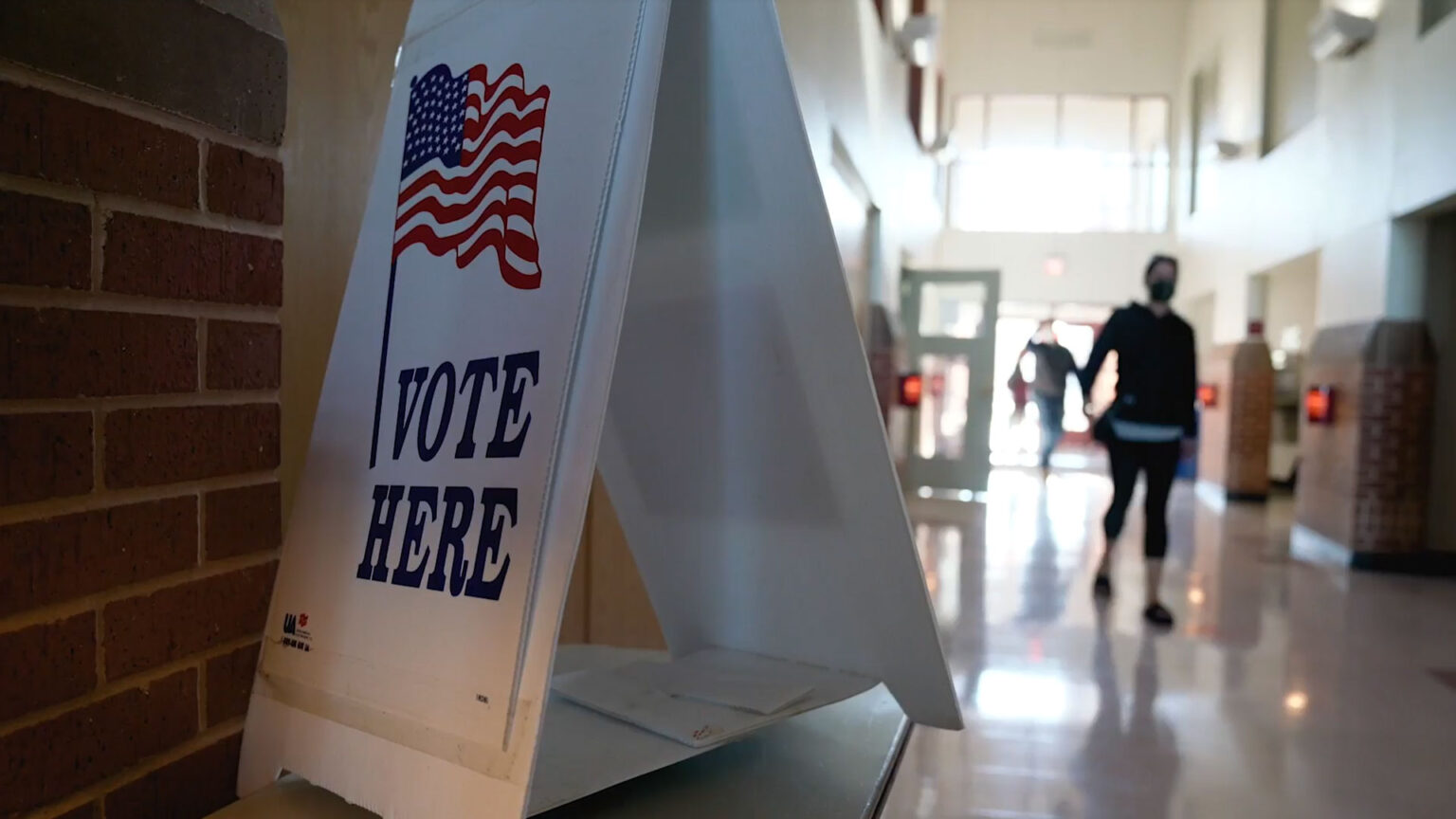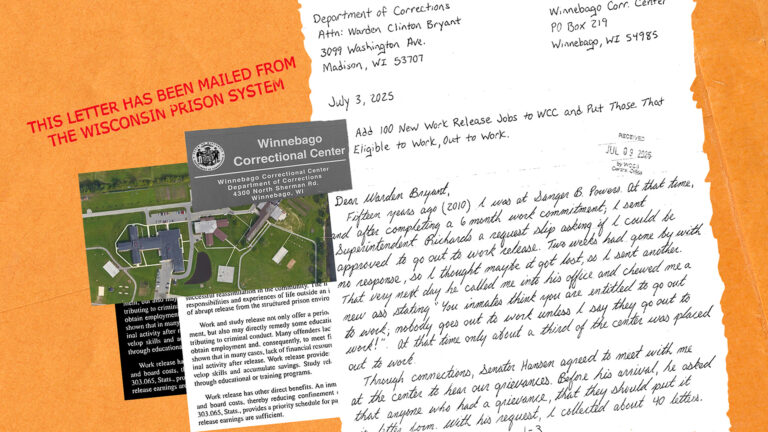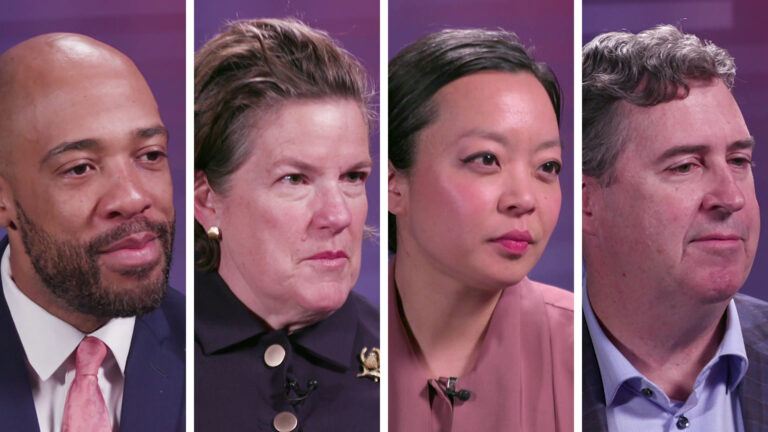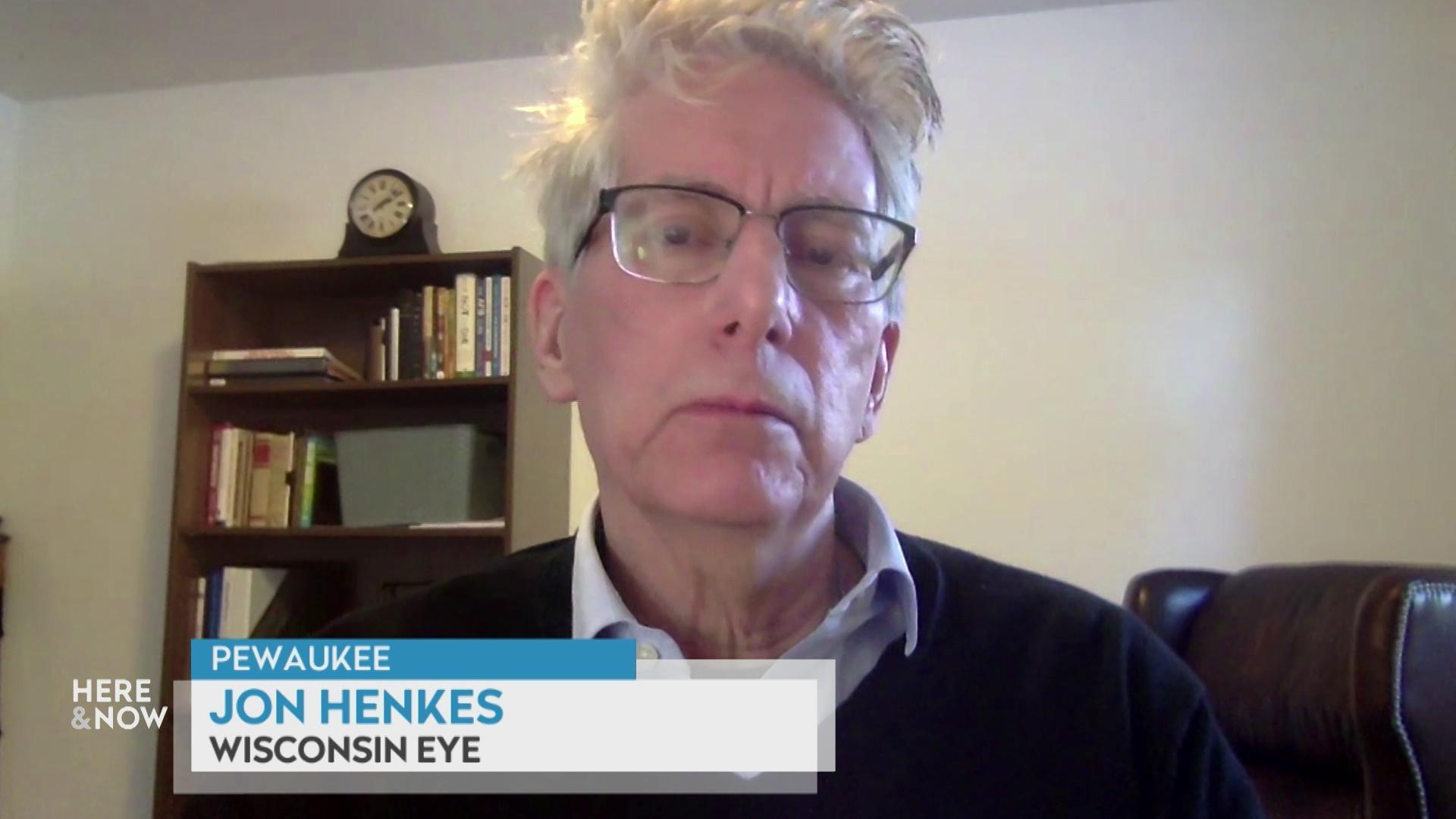New Legislation Would Change Indefinitely Confined Voting
February 23, 2021

"Vote Here" sign at a polling place in Fitchburg Nov. 3, 2020.
Wisconsin Republicans are moving forward with a series of voting reform legislation that makes significant changes for Wisconsinites looking to vote absentee under the indefinitely confined status.
Introduced by Sen. Duey Stroebel, R-Saukville, the legislation would require a voter to submit a signed physician’s note to receive an absentee ballot under the indefinitely confined status—though this would not apply to voters 65 and older.
The bill would also remove the status for voters who received the status between March 12 and Nov. 6 last year. Voters would also be prohibited from using an epidemic as a reason to receive the indefinitely confined status in the future.
Under current law, voters have to submit a signed application to receive the indefinitely confined status, which allows them to receive an absentee ballot without having to submit a photo ID.
The proposed change comes from Republican efforts to clamp down on perceived voting irregularities, which have broadly been debunked by the Wisconsin Elections Commission.
“A large chunk of the public believes that there are issues with our election system,” Assembly Speaker Robin Vos said during a Tuesday news conference. “Do I believe that there are problems with the election system? Of course I do.”
The Trump campaign also alleged irregularities among voters identifying as indefinitely confined in lawsuits challenging the state’s election results—which failed due to a lack of evidence.
Dean Knudson, a Republican appointee to the Wisconsin Elections Commission, also reiterated during a December legislative committee meeting that widespread voter fraud is not a problem in Wisconsin.
“In recent statewide elections, the fraudulent ballots we discover are typically numbered in the dozens to the hundreds,” Knudson said in December. “These tend to be scattered and unorganized violations, most often committed by individuals who fraudulently double vote.”
The legislation makes additional changes to absentee voting as well as the procedure for special voting deputies who help residents of residential care facilities or qualified retirement homes cast their ballots.
Vos said Tuesday he did not have input on the legislation and indicated the Assembly would likely make some changes, saying “some of [the bills] have good ideas in them, some of them have problems.”
The proposal was decried by Democrats who called it an “attack on voter rights,” and is unlikely to be signed into law by the governor.
 Passport
Passport











Follow Us